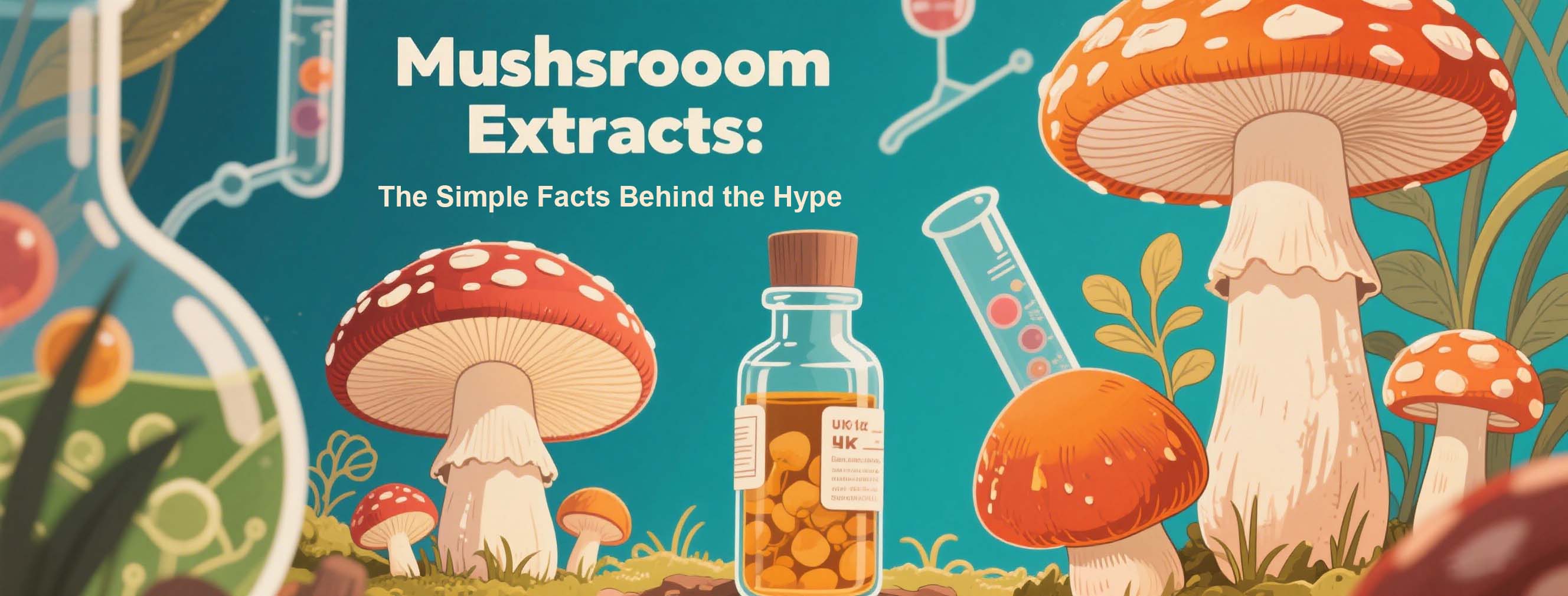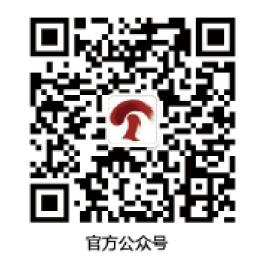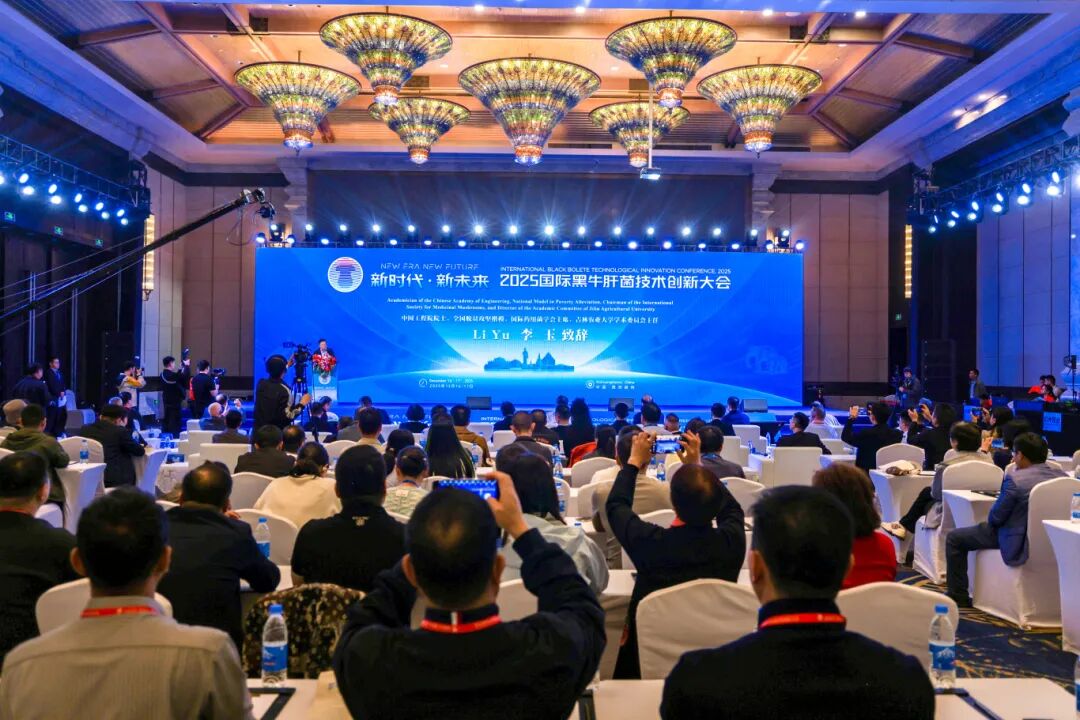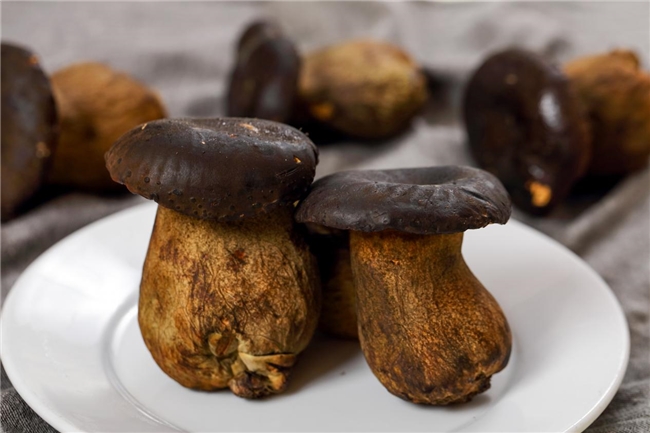
As a professional organization focused on the development of the mushroom industry, the Edible Fungi and Products Branch of the China Chamber of Commerce for Import and Export of Foodstuffs, Native Produce and Animal By-Products is committed to delivering cutting-edge information and integrating high-quality resources for industry peers. Today, mushroom extracts have permeated various fields such as health foods, cosmetics, and functional beverages—from mushroom lattes and protein shakes to skincare serums and even chocolate bars. Some hail them as the new health trend, while others dismiss them as a passing fad. What exactly are mushroom extracts? Why have they garnered widespread attention across industries? This article breaks down key information for professionals to clarify their true value.
What Are Mushroom Extracts?
Mushroom extracts are concentrated forms of mushrooms, converted into powders or liquids through specific processes to make their natural active ingredients more accessible to the human body. The principle is similar to coffee extraction: people don’t consume raw coffee beans directly but brew them to extract flavor and caffeine. Mushroom extracts work similarly, but their benefits extend far beyond "quick effects."
Notably, the raw materials for extracts are mostly "functional mushrooms" rather than common varieties used in daily cooking. Common ones include Ganoderma lucidum, Lion’s Mane, Chaga, Trametes versicolor, Shiitake, and Cordyceps sinensis. Each type has unique effects—enhancing focus, promoting physical and mental relaxation, boosting immunity, or improving stamina.
In traditional Asian medicine, Ganoderma lucidum tea has long been used to relieve fatigue and calm the mind after a busy day, while Lion’s Mane was renowned among scholars for its perceived ability to enhance mental sharpness. These centuries-old practices confirm that functional mushrooms were valued as precious health resources long before modern supplements turned them into capsules or coffee syrups.
Why Do People Use Mushroom Extracts?
Different groups use mushroom extracts for varied purposes. Some seek to improve focus without the jitters from excessive caffeine, while others look for natural ways to boost immunity or relieve stress without relying on medication.
Lion’s Mane is a prime example. Its association with brain health has made it a daily staple for students, professionals, and even gamers aiming to enhance mental performance. Ganoderma lucidum, known as the "balancing mushroom" for its ability to soothe and revitalize, is a go-to for those under high pressure.
Consider the evolution of energy drinks: early versions marketed "quick energy," but the subsequent "crash" led consumers to seek milder, longer-lasting alternatives. Mushroom extracts fill this gap, offering steady, gentle support rather than sharp spikes. Whether you need focus, calm, vitality, or endurance, there’s a mushroom extract to match.
Main Types of Mushroom Extracts
The diversity of mushroom extracts is key to their wide application. Based on processing methods and forms, common types include:
Dual Extracts
Prepared using both water and alcohol, these capture a broader range of compounds—from immunity-boosting polysaccharides to soothing triterpenes. It’s like getting a "full set" of ingredients rather than a single component.
Powder Extracts
Popular for their ease of integration into daily life: a spoonful can be added to coffee, smoothies, or oatmeal. A label stating "10:1" means 10 pounds of mushrooms are concentrated into 1 pound of extract, delivering powerful effects in small doses.
Liquid Tinctures
Convenient to use, often taken sublingually or mixed into drinks. They absorb quickly, making them a favorite for those who dislike powders or capsules.
Capsules
Ideal for those who dislike the earthy taste of mushrooms. Simply swallow with water to start your day.
Whether you prefer the ritual of brewing mushroom coffee in the morning or the simplicity of capsules, there’s no right or wrong choice—only what fits your routine.
Popular Functional Mushrooms and Their Benefits
Functional mushrooms are far more than trendy labels on supplement bottles. Each has a history of use spanning centuries. Here are key varieties and their benefits, as highlighted by the industry:
Ganoderma lucidum: Known as the "calming mushroom," it’s linked to relaxation and improved sleep. Traditionally brewed into tea to calm the mind after a long day.
- Lion’s Mane: Famous for its association with focus and memory. Ancient scholars believed it enhanced mental acuity.
- Chaga: Rich in antioxidants, it’s often brewed into earthy tea in cold climates to support immunity during harsh winters.
- Cordyceps sinensis: Linked to endurance and energy, it’s favored by athletes and those with high-intensity lifestyles, earning it the title of "natural pre-workout supplement."
- Russula: Focuses on gut health and immune balance, used in traditional Asian medicine for centuries.
- Shiitake: More commonly known as a kitchen ingredient, its extract is also valued for supporting heart health and overall vitality.
Thanks to complementary benefits, "combination use" is trending: for example, pairing Lion’s Mane (for morning focus) with Ganoderma lucidum (for evening relaxation) has become a daily routine for many.
Potential Market and Future Trends
The mushroom extract market is experiencing explosive growth, with its potential and trends deserving industry attention:
Expanding Global Market Scale
Industry data shows the global functional mushroom extract market exceeded $8 billion in 2024 and is projected to reach $21 billion by 2030, with a compound annual growth rate (CAGR) of over 17%. North America and Europe are core consumer markets, while the Asia-Pacific region leads in growth (20% CAGR) due to traditional consumption habits and rising health awareness. Among segments, functional foods (e.g., energy bars, plant-based milk), dietary supplements, and cosmetics are the top growth drivers—especially products with "natural ingredients + scientific validation" commanding significant premiums.
Cross-Industry Application Expansion
- Health Foods: Moving beyond single capsules into ready-to-drink beverages, baked goods, and snacks—such as protein cookies and probiotic yogurt with mushroom extracts—catering to the demand for "nourishment through daily eating."
- Cosmetics: Ganoderma lucidum and Shiitake extracts, valued for their antioxidant and anti-inflammatory properties, are used in anti-aging creams and soothing masks, promoting "natural repair" to align with consumer demand for "additive-free" products.
- Pet Health: An emerging fast-growing sector, pet supplements containing Lion’s Mane and Cordyceps are used to boost immunity and improve digestion in dogs and cats, with the market growing 35% year-on-year in 2024.
Quality Upgrades Driven by Technological Innovation
- Extraction Process Innovation: Supercritical CO₂ extraction and low-temperature enzymatic hydrolysis are becoming more common, retaining polysaccharides, triterpenes, and other active ingredients more efficiently while reducing solvent residues to meet high-end market demands for "purity."
- Standardization and Traceability: Genetic sequencing identifies strains, and blockchain traces the entire process from cultivation to extraction, addressing long-standing industry issues of "inconsistent ingredients." Leading enterprises have begun publishing "batch-specific component test reports."
Product Segmentation Driven by Consumer Demand
- Population-Specific Customization: Segmented products such as "brain-boosting formulas" (Lion’s Mane + Ginkgo biloba) for students, "immunity-boosting packs" (Shiitake + Chaga) for the elderly, and "liver-protecting combinations" (Ganoderma lucidum + Cordyceps militaris) for night owls are growing rapidly.
- Convenient Forms: New formats like lozenges and freeze-dried effervescent tablets solve issues with traditional powders (slow dissolution, poor taste), adapting to fast-paced lifestyles.
Evolving Policies and Regulations
As the market expands, regulations on mushroom extracts are tightening globally: the EU has included Ganoderma lucidum and Lion’s Mane in its "Novel Food List," requiring safety assessments before listing;China is also developing national standards for functional mushroom extracts, specifying raw material requirements, testing methods, and scope of efficacy claims. While regulation increases short-term costs for enterprises, it will eliminate low-quality production in the long run, benefiting compliant enterprises in building brand barriers.
Expanding Business Opportunities Through China Mushroom Days
Amid rapid market growth and technological change, all links in the industry chain need an efficient docking platform—and China Mushroom Days is designed to be this professional link.
As a key industry platform supported by the Edible Fungi and Products Branch, China Mushroom Days offers three core values to the industry:
- Precise Supply-Demand Matching: Bringing together over 200 global suppliers and 2,000+ buyers, covering the entire chain from raw material strains to end products. Buyers can filter suppliers by "active ingredients," "certifications," or "production capacity," while suppliers can target B2B clients such as health product companies, food processors, and cosmetics brands.
- Sharing Cutting-Edge Trends: Hosting irregular themed forums, such as "Functional Mushroom Innovation Forum" and "Medicinal Mushroom Symposium," inviting research institutions and leading enterprises to share the latest findings (e.g., clinical efficacy data, new extraction technologies) to help enterprises grasp product development directions.
- Bridge for International Cooperation: Leveraging the Branch’s resources to connect with industry associations in the EU, Southeast Asia, and other regions, facilitating better communication and business collaboration between domestic and foreign enterprises. Cross-border orders facilitated by the Branch grew 42% year-on-year in 2024.
The Edible Fungi and Products Branch will continue to use China Mushroom Days as a platform to integrate research, production, and distribution resources, driving the mushroom extract industry from "hype" to a mature stage of "science-driven, quality-first development." We look forward to working with industry peers to seize market opportunities and promote the efficient development and sustainable utilization of functional mushroom resources.
As a professional platform focusing on the mushroom industry, China Mushroom Days builds a B2B docking bridge for the sector:
For buyers, it offers one-stop access to a full range of mushroom extracts—from Lion’s Mane powder and Ganoderma lucidum extracts to Chaga tinctures and Shiitake capsules. They can filter suppliers by product type, certification standards, or origin, and directly request quotes or samples.
For manufacturers, there’s no need to rely on exhibitions or blind customer development. They can showcase product advantages and highlight certifications (e.g., organic, halal) through the platform, responding to procurement inquiries from across China and globally.
By simplifying the docking process, China Mushroom Days makes procurement more efficient and transparent: whether it’s brands planning to launch new products or manufacturers looking to expand global markets, all can convert demand into tangible business opportunities through the platform.
The Edible Fungi and Products Branch will continue to monitor trends in the mushroom extract industry, integrating resources and connecting opportunities for industry peers through platforms like China Mushroom Days. We look forward to exploring the potential of this field with you and promoting standardized, high-quality industry development.
About China Mushroom Days
Hosted by the Edible Fungi and Products Branch of the China Chamber of Commerce of Food, Native Produce, and Animal Products, the China Mushroom Days showcases products and services from the entire edible fungi industry chain, striving to create a one-stop sourcing platform for the entire edible fungi industry chain.
The Edible Fungi Smart Manufacturing Innovation Zone showcases fungi strains, raw materials, equipment, and intelligent technologies, encompassing suppliers of equipment and technology required for every stage of edible fungi production. The Edible Fungi Industry Revitalization Zone features edible fungi production, cultivation, and sales companies, as well as exhibition groups from major edible fungi-producing regions across China and international mushroom companies.
The event is held annually in Xiamen, Fujian Province, a hub of the mushroom industry.
About the Edible Fungi and Products Branch of the China Chamber of Commerce for Import and Export of Foodstuffs, Native Produce and Animal By-Products
The China Chamber of Commerce for Import and Export of Foodstuffs, Native Produce and Animal By-Products, a public institution directly managed by China’s Ministry of Commerce, is China’s largest agricultural product industry organization. It is responsible for coordinating, serving, promoting, and protecting the rights and interests in national agricultural product import and export trade, with over 6,000 member enterprises.
Founded in 2002, the Edible Fungi and Products Branch (officially named the Edible Fungi and Products Import and Export Branch) is primarily responsible for coordinating, serving, promoting, and protecting the rights and interests in national edible fungi import and export trade. It has over 100 large key member enterprises engaged in edible fungi production, processing, circulation, and trade in China.

创新博览会LOGO-white.png)


Copyright © China Chamber of Commerce of Food, Native Produce and Animal Products Edible Fungi and Products Branch
京公网安备11010102004652号 京ICP备05021290号-29 | Technical Support: Starify Privacy Policy Sitemap Contact Us
创新博览会LOGO.png)




